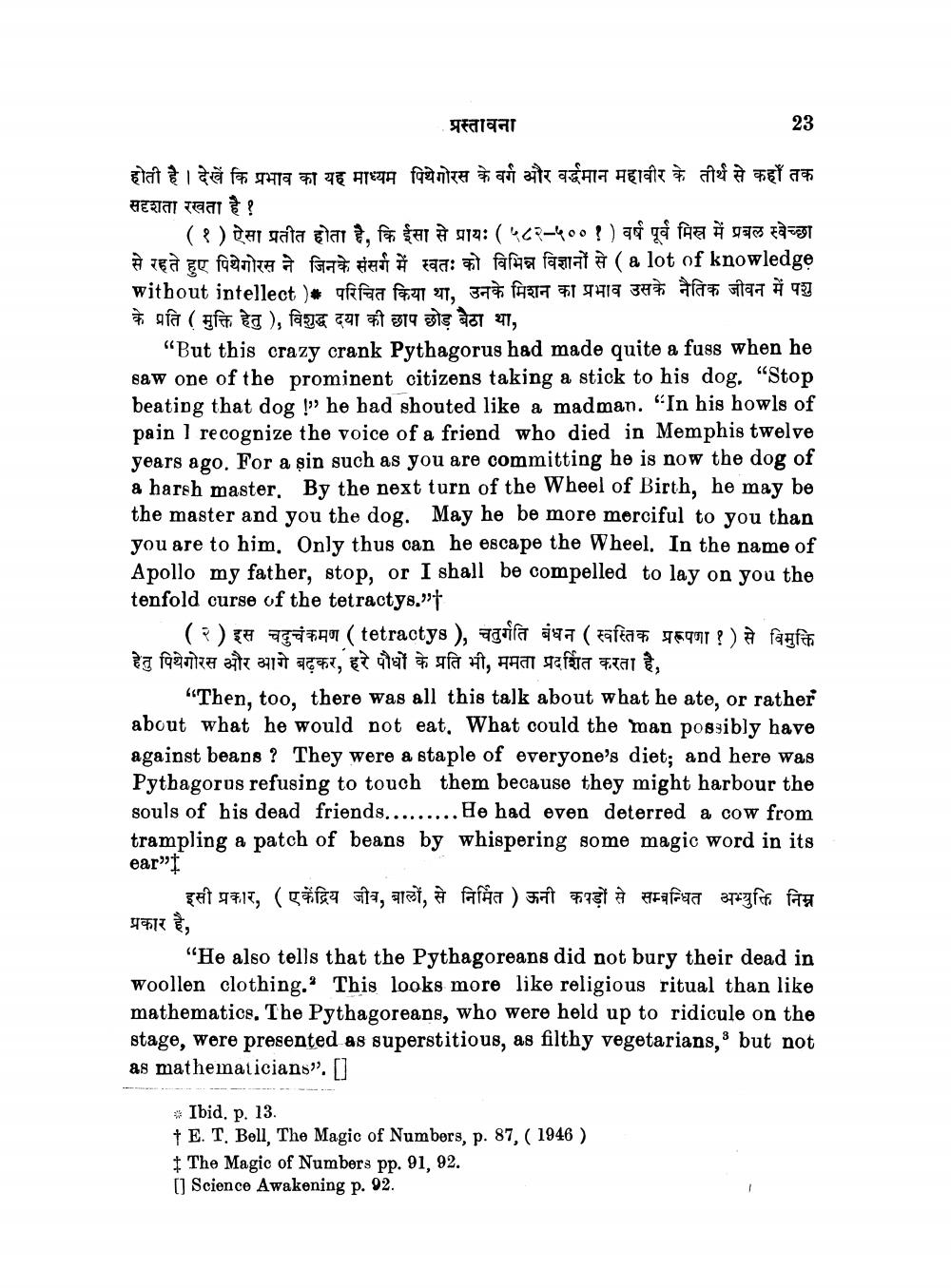________________
प्रस्तावना
होती है । देखें कि प्रभाव का यह माध्यम पिथेगोरस के वर्ग और वर्द्धमान महावीर के तीर्थ से कहाँ तक सदृशता रखता है १
( १ ) ऐसा प्रतीत होता है, कि ईसा से प्रायः ( ५८२ - ५०० १ ) वर्ष पूर्व मिस्र में प्रबल स्वेच्छा से रहते हुए पिथेगोरस ने जिनके संसर्ग में स्वतः को विभिन्न विज्ञानों से ( a lot of knowledge without intellect ) परिचित किया था, उनके मिशन का प्रभाव उसके नैतिक जीवन में पशु प्रति ( मुक्ति हेतु ), विशुद्ध दया की छाप छोड़ बैठा था,
23
"But this crazy crank Pythagorus had made quite a fuss when he saw one of the prominent citizens taking a stick to his dog. "Stop beating that dog!" he had shouted like a madman. "In his howls of pain 1 recognize the voice of a friend who died in Memphis twelve years ago. For a sin such as you are committing he is now the dog of a harsh master. By the next turn of the Wheel of Birth, he may be the master and you the dog. May he be more merciful to you than you are to him. Only thus can he escape the Wheel. In the name of Apollo my father, stop, or I shall be compelled to lay on you the tenfold curse of the tetractys."+
( २ ) इस चदुचंक्रमण ( tetractys ), चतुर्गति बंधन ( स्वस्तिक प्ररूपणा ? ) से विमुक्ति हेतु पिथेगोरस और आगे बढ़कर, हरे पौधों के प्रति भी, ममता प्रदर्शित करता है,
“Then, too, there was all this talk about what he ate, or rather about what he would not eat. What could the man possibly have against beans? They were a staple of everyone's diet; and here was Pythagorus refusing to touch them because they might harbour the souls of his dead friends......... He had even deterred a cow from trampling a patch of beans by whispering some magic word in its ear”—
इसी प्रकार, ( एकेंद्रिय जीव, बालों, से निर्मित ) ऊनी कपड़ों से सम्बन्धित अभ्युक्ति निम्न
प्रकार है,
"He also tells that the Pythagoreans did not bury their dead in woollen clothing. This looks more like religious ritual than like mathematics. The Pythagoreans, who were held up to ridicule on the stage, were presented as superstitious, as filthy vegetarians, but not as mathematicians". []
* Ibid. p. 13.
† E. T. Bell, The Magic of Numbers, p. 87, ( 1946 )
‡ The Magic of Numbers pp. 91, 92.
[] Science Awakening p. 92.




